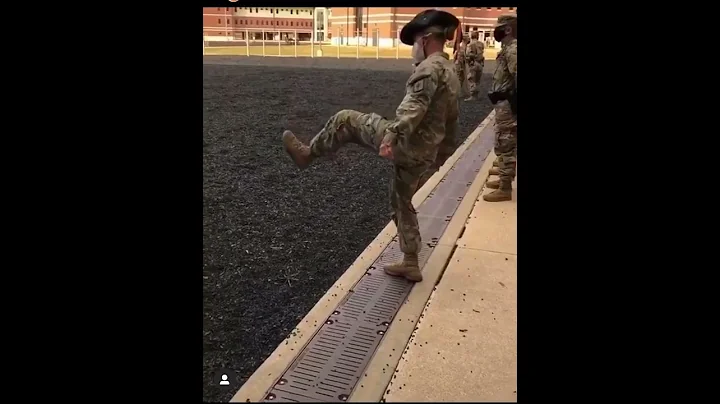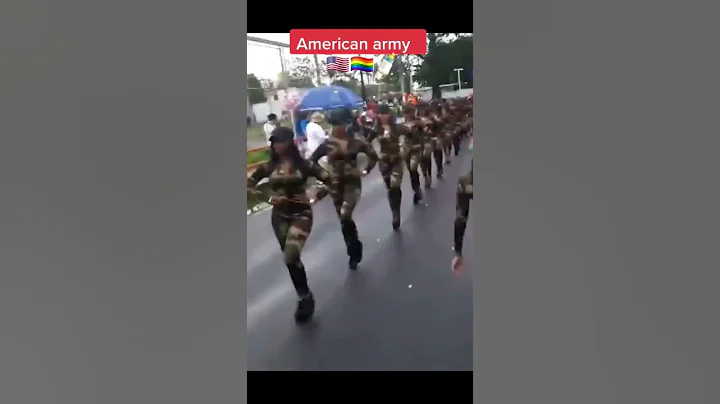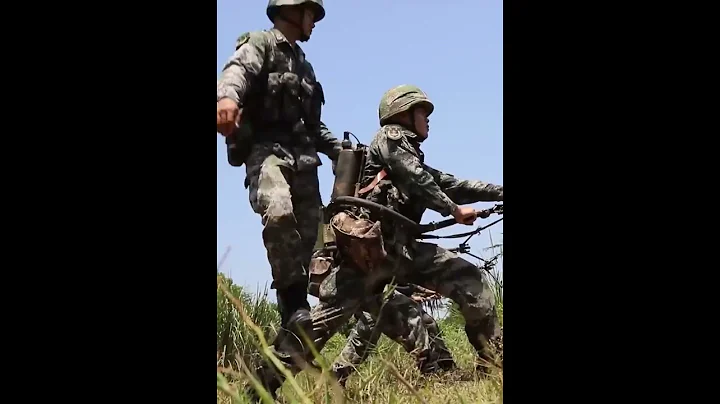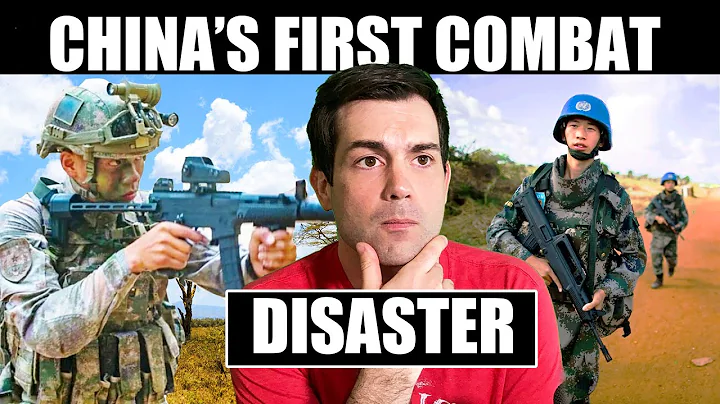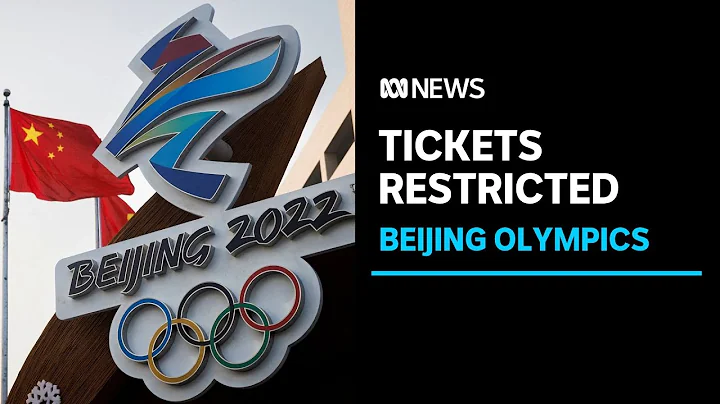Winter Offensive Documentary
Yao Yu
After the autumn offensive, the Kuomintang army was forced to shrink its troops. Not only was it short of material supplies, but it was also in trouble to replenish its troops. After expansion and training, the total strength of our army has reached more than 700,000, exceeding the total strength of the Kuomintang army in the Northeast.
html In mid-December, according to the instructions of the "Eastern General", our army decided to take advantage of the frozen rivers and the favorable conditions for mobile operations to concentrate all the main forces and launch a winter offensive.
During the winter offensive, in addition to engaging in large-scale mobile warfare with north-south pincer attacks and echoing from east to west, we also conducted urban warfare under favorable conditions in view of the fact that the enemy concentrated its forces to defend large and medium-sized cities, and our army's opportunities for mobile warfare were gradually reduced. Fight hard.

1. Capture Zhangwu
The winter offensive began. Our army attacked from the east to the west. Instead of attacking the French library, which was well fortified and easy to defend and difficult to attack, we surprised the enemy and headed west to take Zhangwu. Zhangwu is an important stronghold on the railway line north of Shenyang. It is guarded by three regiments of the 79th Division of the 49th Army of the Kuomintang Army, with a strength of about 10,000 people. The enemy relied on the favorable terrain to build multiple strongholds. In the center of the stronghold was a group of bunkers. The bunkers were connected by ditches and equipped with strict firepower. The bunkers were surrounded by many obstacles such as deer villages, barbed wire fences, and horse trip stakes. Landmines were also buried in important areas. . The city wall was made taller and thicker, poured with water and frozen into ice, as if it were covered with armor. There were trenches 3 meters deep and 5 meters wide outside the city.
Our 7th column was ordered to insert into the area of Faku and Xinmin. In the area south of Faku, annihilated one regiment of the 59th Division of the newly formed 6th Army, and then worked with the brothers to capture Zhangwu and completely annihilated the 79th Division of the defending 49th Army.
html On December 18, our unit set out from Haraganshi, along the north Xinxiang and east Liujiazi to rest in the area of Xiliujiazi in the south of Zhangwu. While the troops were preparing to attack Zhangwu County, a battalion of the 237th Regiment from the enemy's 79th Division (the 79th Division of the enemy's 49th Army had encountered our division in Shennan) attacked our army's station and were quickly beaten away by us. , leaving behind more than a dozen casualties.
html On December 25, our regiment moved into the Luojiawobao area northwest of Zhangwu County to make preparations for the main attack. The operational concept was to attack foreign aid strongholds first and then surround Zhangwu City. The troops used geotechnical operations to dig underground trenches until they reached the outer trenches, barbed wire fences and city walls of Zhangwu City, and then blasted and attacked the city.
htmlOn December 26, the peripheral enemies were eliminated. The Second Battalion, under the command of Deputy Battalion Commander Liu Guibao, took only ten minutes to destroy three enemy bunkers and clear the perimeter.
html On December 27, our regiment engaged in fierce battles with the enemy outside the west gate and north gate of the city, approaching the city wall.
html On December 28, at 7 o'clock in the morning, our army began its general offensive. The artillery began to concentrate its firepower on the breach. They fought for about 40 minutes, blowing up all the fortifications, barbed wire and other obstacles in front of the breach. Then, the assault troops detonated the explosives piled in the tunnel entrance under the city wall, and the vanguard troops began to attack.
During the attack, our division was assigned to the 58th Regiment and the 1st Artillery Regiment as the first echelon, and the 19th Division was the second echelon, attacking from the northwest corner into the city. At that time, the enemy poured water on the earthen city wall and it was frozen into ice, making it impossible for people to climb up and difficult to destroy with artillery shells. Our regiment's three 120mm howitzers and four combat anti-cannons only destroyed less than 3 meters of the 4-meter-high city wall. Therefore, we suffered heavy casualties during the general offensive. Only 6 cadres above the battalion level were sacrificed. The first battalion of the sharp knife company rushed into the city first, and the second company followed closely and also entered the city. When the third battalion followed up to the periphery, its advance was suddenly blocked, causing more than a hundred casualties, and it was blocked from the first echelon for 2 and a half hours. The regiment headquarters ordered the blast to be unsuccessful, so they had to reorganize the artillery fire attack. Finally, they suppressed the stubborn enemy and occupied the main temple on the battle demarcation line. During the battle, each battalion supported each other, fought side by side, carried out roundabout campaigns, carried out street battles, and competed for a compound or a house. The battle was extremely fierce.
At around 3 pm, the battle ended. Post-war statistics showed that our regiment killed, wounded, and captured a total of 1,034 enemies, seized 15 cannons of various types, 333 light and heavy machine guns, and hundreds of firearms of various kinds. We had 656 casualties. Regiment Chief of Staff Zhao Xianfeng, First Battalion Chief and Deputy Instructors Yang Xichang and Zhao Honghai, Second Battalion Commander Hao Zhende, Deputy Battalion Commander Liu Guibao, and Third Battalion Commander Ma Zhenji all died. The deputy battalion commander of the first battalion, the instructor of the second battalion, the chief and deputy instructor and the deputy battalion commander of the third battalion were also injured. Only two and a half of the 12 battalion-level cadres were left. The first battalion commander Liu Faqing, the second battalion deputy instructor Hui Junrui , and the third battalion deputy instructor Chen Xiaotao was injured in his left arm and did not get off the line of fire. He hung his left hand around his neck with gauze and continued to direct the battle until victory.
After more than five hours of fierce fighting since the beginning of the general offensive, Li Futai, deputy commander of the 79th Division of the enemy's 49th Army, was captured. Division Commander Qiao Wenli escaped in disguise, and all the more than 10,000 defenders of Zhangwucheng were wiped out.
Later, a veteran of the enemy's New 1st Army who had been on an expedition to Burma escaped from Shenyang and surrendered. Chief of Staff Lian Subo personally talked to him to understand the enemy's situation. He indicated with gestures that he was Sanbanzi. Chief of Staff Lian stated that he knew Sanfanzi (captured 3 times). So, as if he were meeting relatives, he told that the enemies of Shenyang include the New 1st Army, the New 6th Army, the 52nd and 53rd Army, and the Liao Yaoxiang Corps. He said, I am an old squad leader and spend a lot of time close to my superiors. Qiao Wenli ran back to Shenyang to see Wei Lihuang. Wei said: "You lost the entire division. The three regiments are all veteran troops who are good at defense. You made a mistake in command and still came back alive? Shoot!" This matter was later obtained. confirmed.
The victory of the Zhangwu offensive was the first urban offensive launched by our army during the day in the Northeast, and it received a power-on commendation from the Central Military Commission.

2. March into Xinmin
html At the end of December , our 7th Column entered the Xinmin area to fight, destroyed the Yaobao section of the High-tech Railway, captured the Baiqibao Station, opened up the north-south passage in the 6th and 9th districts, and forced the enemy to retreat to Xinmin County. At this time, friendly forces were encircling and annihilating the enemies of Faku. The two divisions of Xinmin defending the enemy were preparing to support the enemy of Faku. During our army's attack on Zhangwu, the enemy in Shenyang stood still and did not dare to come out for reinforcements. But just when we were celebrating our victory, the enemy concentrated the troops of the New 1st Army, the New 3rd Army, the New 5th Army, the New 6th Army and the 71st Army. The main force, a total of 15 divisions, advanced towards Faku in three directions, trying to break the siege of Faku. This happens to be a favorable opportunity to annihilate the enemy in mobile warfare. Our army concentrated its main force and first targeted the New 5th Army on the left, which was advancing aggressively.
On January 3, 1948, our regiment was ordered to set off from Zhangwu. In the winter in the Northeast, it is freezing cold, with heavy snowfall, the temperature drops to more than 30 degrees below zero, and the snow in the farmland is one foot thick. Along the way, we wore thick cotton-padded clothes and cotton-padded shoes with urala grass on our feet, and trudged southward in more than a foot of snow. We took one step and half a step back on the slippery snow. The gun barrel will be glued with a layer of skin. However, the comrades were still in a high mood and were not afraid of difficulties. They went straight to the Gaotaizi area north of Xinmin County in . Build a defensive line on the giant river embankment near Daziying, preparing to block the enemy. At that time, our regiment was the reserve team of the division. When the main force fought a fierce battle with the enemy, the enemy was beaten and fled in panic. Our regiment wiped out 314 enemies on the periphery.
After the battle, we marched south again. On the march, the snow was trampled and turned into ice, several centimeters thick, and everyone kept wrestling. After arriving at Baiqi Fort in the southwest of Xinmin, the troops rested here for 20 days. The soldiers said, we attacked Xinmin three times, and this time we attacked Baiqi Fort twice. During this period, news came that our 7th Column cooperated with the brother columns to completely annihilate the newly formed 5th Army Headquarters, the 43rd Division, and the 195th Division, a total of more than 20,000 people. The enemy commander Chen Linda, the commanders of the 43rd Division and the 195th Division were captured. Everyone felt sorry for not participating in the battle.

3. Approaching Shenyang
On December 30, 1947, the "Eastern General" issued a general order . With the approval of the Central Military Commission, the Northeast Democratic Alliance was renamed the Northeast People's Liberation Army , with Lin Biao still serving as commander and political commissar. Lu Zhengcao, Zhou Baozhong, and Xiao Jinguang serve as deputy commanders, and Luo Ronghuan, the first deputy political commissar. The General Headquarters of the Northeast Democratic Alliance Army was changed to the Northeast Military Region Headquarters of the Chinese People's Liberation Army on January 1, 1948, and its abbreviation was also changed to "'Dongsi". After the decision of was conveyed, all the commanders and fighters were very excited. At that time, all the troops killed pigs and sheep to celebrate.
html On November 28, our regiment was ordered to set off for the south of Shenyang and passed Liuerbao, which was a large village with nearly a thousand households. The entire village has two miles of streets along the road. We were on the south side of Sujiatun'er Railway Station in the south of Shenyang, crossed the sea and sky, and arrived in the area north of Huangshanzi. We carried out the tasks of luring the enemy and providing reinforcements, and prepared to cooperate with friendly forces to liberate Anshan and Liaoyang.
During the march into the south of Shenyang, the snow was deep and the road was slippery, making it difficult to walk. Comrade Zhao and I fell behind when we were carrying boxes of documents. At that time, Lao Zhao and I were swapping boxes of documents, but we still couldn't walk fast. When we were still more than ten miles away from the campsite, we couldn’t walk anymore. Lao Zhao said again that he was so hungry that he couldn't bear it anymore. I also had several blisters on my feet. So when we passed by a small village, we found a family to get some food. I asked the village chief for a civilian husband and gave him two yuan to help us pick out boxes of documents. Just agree to pick the village in front. As a result, the village chief found a man in his 30s, 1.8 meters tall, who looked very strong. After picking up the suitcases, we walked to a place that was more than three miles away from the village in front of us. The farmer thought the road was not easy, so he stopped picking up the suitcases. He thought we didn't have guns, so he picked up a pole and wanted to beat Lao Zhao. At this time, I immediately took out the revolver from my coat pocket and said to him, "If you dare to hit him, I will shoot you!" He had no choice but to pick up the box again and move forward.
We finally reached the edge of the village and found a sentry. I went over and asked the sentry which army he belonged to. He didn't tell me, but asked me which army I was from. I answered him with a password, and he told me that it was the 61st Regiment. The regiment headquarters was on Qian Street, half a mile away. I came over and said to the fellow, please go, thank you. The fellow said, I was really sorry just now. I said it’s okay, we don’t understand each other. When we returned to the regiment staff office, Wang Jiyuan staff officer said, I was going to pick you up! Trainee staff officer Qi Kun went to the cooking class to prepare food for us, and staff officer Wang went to get us hot water to wash our feet.
There is a Hun River on the south side of Shenyang City. Qingduizi on the south bank of the river is a strong point for the enemy, and a reinforced enemy platoon is stationed there. February 9th is the eve of the New Year, and the enemy is celebrating the New Year happily. A platoon of the mortar company of our regiment was attached to the fifth company, and suddenly launched an attack on the enemy in Qingduizi. Starting at 8:30 pm, it only took 40 minutes to completely annihilate the enemy. At 9:30 pm, Chief of Staff Lian Shubo came to the staff office and made dumplings with us. He said, we have won the battle and nothing will happen. Let’s all have a good New Year!
After resting on the spot for two days, we set out for activities in Huangshanzi, Yao Qianhu, Shilihe area. On February 24, our group climbed the ice near Tongjiangkou, crossed the Liaohe River, and headed straight to Siping.

4. Capture Siping
In order to completely cut off the connection between Shenyang and the enemy in Changchun, after our army captured Faku and Kaiyuan , the main force began to move northward in covert manner, preparing to capture Siping again. If the enemy in Shenyang comes out to support us, we will strive to annihilate them during the movement. Our army mainly attacked Siping with the 1st, 3rd, 7th and independent 2nd Column. Other troops are hidden in the Changtu, Kaiyuan and Tongjiangkou areas, preparing to encircle and annihilate enemies who may rescue Siping from Shenyang and Tieling to the north.
html In early December, after our 1st, 3rd, and 7th columns completed the encirclement of Siping, they quickly cleared away the enemies on the periphery.
html On March 12, our army launched a general offensive. The 62nd Regiment of our division served as the main offensive, and our 61st Regiment was the second echelon. Breakthrough on the east side of the railway south of Siping City. The attack started at 8 a.m. and ended at 7 a.m. on the 13th. After a day and night of fierce fighting, Siping was conquered and the 88th Division of the 71st Army, 3 security regiments and 1 cavalry regiment were completely wiped out. Capture the enemy division commander Peng E alive. More than 1,600 enemies were killed, wounded and captured. Received the commendation issued by Commanders Lin and Luo.
This Siping offensive is the first large-scale urban offensive of our Northeast Field Army. In this battle, hundreds of group fortifications and thousands of bunkers of the Kuomintang army were destroyed. During the battle, some companies were reduced to only a few men, who were organized into a squad and fought again; some company cadres all sacrificed, and the soldiers automatically organized charge after charge.
During this attack on Siping, the local party organization organized the work of supporting the front line in an orderly manner. Organize manpower to help troops transport ammunition and rescue the wounded. A stretcher team and large convoy composed of nearly 10,000 migrant workers supported our operation, and some even directly participated in the battle against the enemy. After the war, a large number of groups and individuals received awards for their meritorious service and were rated as model frontline workers.
During our army's attack on Siping, the enemy defenders who were surrounded in Jilin abandoned the city and fled to Changchun. Our army immediately recovered Jilin. Since the enemy in Shenyang never dared to come out, the brothers' column who was preparing to fight for reinforcements had nothing to fight. With the conquest of Siping, our army ended its winter offensive.
html On March 18, our regiment stationed in the area of Banla Mountain Gate, 30 miles east of Siping, to rest and recuperate. Carry out war reviews, class education and party consolidation work. At that time, it was called three rectifications and three inspections, that is, rectification of thoughts, rectification of disciplines, rectification of work style, inspection of class, inspection of party discipline, and inspection of ideology. After that, merit evaluation was carried out, and I was rated as having great merit. In the regimental staff office, I was the only one who made great contributions.
After the group held a celebration meeting, the heroes ate together. Pig, beef, chicken, fish, four bowls of vegetables. Commander Mao Hefa said to the comrades: "The rest is almost over. Let's prepare for a new battle. I hope the comrades will make new achievements!"
This winter offensive started on December 15, 1947, and ended in 1948. It ended on March 15th and lasted for three full months. During these three months, our army completely wiped out one corps and eight divisions of the Kuomintang army, totaling more than 150,000 people. We also won over one division to revolt, conquered 17 strategic key cities, and cut off the Beining and Zhongchang Railways. line, compressing the Northeastern Kuomintang army into three isolated areas of Jinzhou, Shenyang and Changchun, creating favorable conditions for the subsequent annihilation of the Northeastern Kuomintang army. The victory of our army's Northeast Winter Offensive was highly praised by the Central Military Commission and Chairman Mao.
After the winter offensive, Lin and Luo convened a twin-city meeting to summarize the experiences and lessons learned from the winter offensive. There are many contents conveyed to our regiment, among which there are two basic conditions for our army to achieve combat victory: first, strong political and ideological work; second, correct strategic planning and tactical principles. During the battle, the morale of the commanders and soldiers of each unit was high and the tactical principles were properly applied.

Author: Yao Yu
(Illustration: Liu Jianguo)


